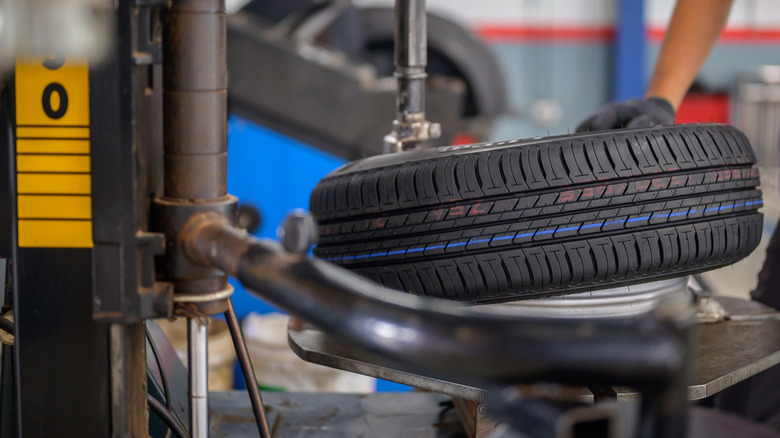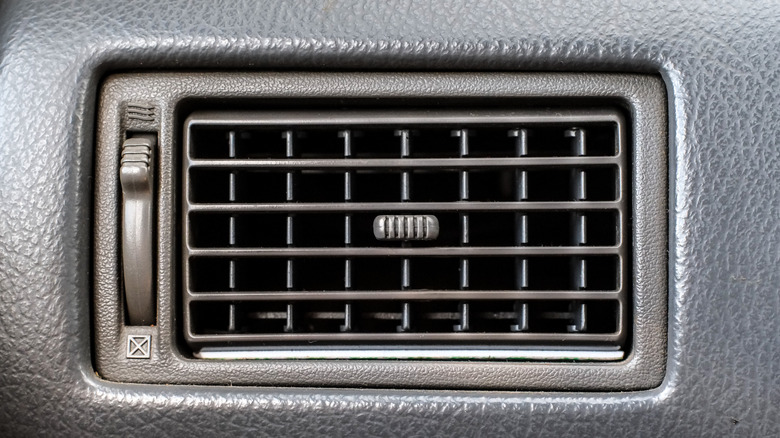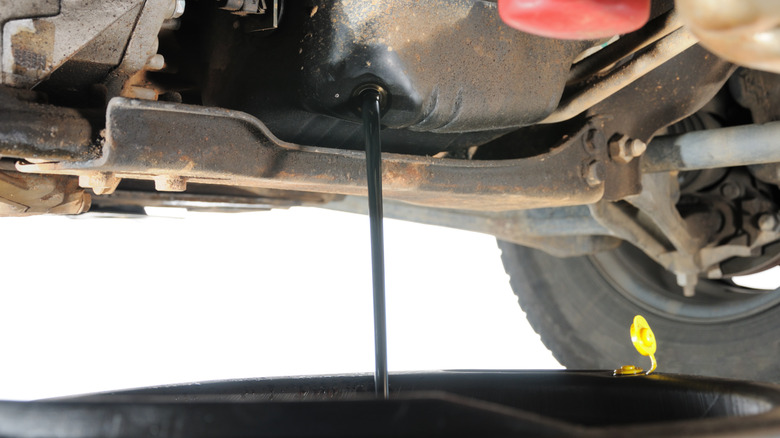5 Ways To Prepare Your Pickup Truck (Gas Or Diesel) For Warmer Weather
We may receive a commission on purchases made from links.
When the winter gradually comes to a close and spring starts to march in, natural changes begin to occur. The weather gets warmer, the snow melts away, all the bugs and critters return from the south or from hibernation, and so on. All things change in the spring, and that goes for both the artificial world and the natural world.
Specifically, as things slowly start to warm up, there are some measures you'll want to take in order to preserve the efficiency of your pickup truck. A truck may not be a living thing, but that's precisely why it needs you to take care of all the springtime fixes, clean-ups, and top-offs. If you keep driving your truck as though it were still winter, you could end up damaging it or diminishing its capabilities. If you're already planning for a big spring cleaning crusade, consider adding this brief list of truck chores to your to-do list.
Get a thorough wash done
The first and foremost thing you should do for your truck's overall health is give it a thorough washing. While it's always a good time to get a car wash done, it'd be understandable if you slacked a bit on vehicular cleanliness while it was freezing outside. It's precisely because of that, though, that you should give your pickup a good rinse once the seasons start changing. After all, you've got a whole winter's worth of accumulated crud on there, not to mention potentially damaging substances like leftover road salt.
As with cleaning any vehicle, washing the winter gunk off your pickup truck is never as simple as throwing a bucket of water at it and calling it a day. You need to go the whole nine yards, especially if it's been a while — use a professional-grade, pH-balanced soap, apply it with a cleaning brush, buff out smudges with a soft sponge, and so on. You can get a kit of car cleaning tools off Amazon if you don't have them already, but if you're in a hurry, you can also get a detailing done at your local car wash.
Inspect and swap your tires
Besides the truck's body, the tires are the next most prominent component to have leftover effects from the winter season. They were making contact with all that snow, slush, and ice throughout the winter, after all, so you need to make sure they're still in good shape for the warmer months. Any accumulated wear and tear may have been frozen in place in the winter, but it'll swiftly become a problem when things start to thaw.
If you're using winter-specific tires on your pickup truck, you should get those swapped out with warm-season tires right away. While you can technically use cold-season tires in the warmer seasons, their grippy rubber bodies will wear out quickly and cause your truck to handle poorly. If you're using all-season tires on your truck, you can leave them on there, but you should still give them a thorough inspection. Check the pressure first, as changes in temperature can affect the pressure in your tires. Don't forget to check the alignment and treads as well — the cold season may have caused a crack in the treads, so you'll want to replace those before you take any long drives.
Double-check the air conditioner
Anyone who's been trapped on an open highway at the height of summer can attest to the importance of in-car air conditioning. You probably weren't using the AC much during the cold season, but you shouldn't just assume it's ready to start blasting cold air again as soon as things heat up. Give the AC system a detailed inspection, or have a professional mechanic check it if you don't know how to do it yourself.
Either you or a mechanic will want to check the fans on the condenser or radiator to ensure cool air actually blows out when the AC is on. You should also inspect and, if necessary, replace the cabin air filter, as its months of sitting unused may have left it clogged with dust and debris. The last thing you want is to go for a drive in your truck on a hot spring day, only to find that you can't get any cool air out of your air vents, so you'll want to take care of all this as soon as possible.
Switch back to regular windshield wipers
In a similar vein to tires, there are separate windshield wipers intended for the cold months and for the rest of the year. If you were doing a lot of driving in your pickup truck during the winter season, you were probably using winter wipers — these wiper blades are made of cold-resistant materials that maintain their flexibility better in lower temperatures. They may also have thicker beam blades that distribute wiping pressure more evenly to better handle buildups of ice and snow.
While these kinds of wipers are great for the cold season, once things start to warm up, you should get them swapped with regular all-year wipers once you're reasonably sure it's not going to snow anymore. Since winter wipers are designed to wipe the entire surface of the windshield more thoroughly, and with the expectation of wet conditions, trying to use them when it's hot and dry out may cause them to wear out faster than usual. Just like with your tires or AC, the last thing you want is your wiper blades to wear out when you actually need them, such as during a springtime thunderstorm. Bear in mind even if you were using all-season wipers during the winter, you should still inspect them for damage and wear.
Check and swap fluids as necessary
The transition between cold and warm temperatures can have some knock-on effects on your truck's internal components, particularly the various fluid elements. Things like engine oil, brake fluid, wiper fluid, and more could have congealed if they were left in the cold for too long. Alternatively, if you were using specially formulated fluids for the cold, such as a wiper fluid meant for dissolving ice, it won't do you any favors to leave those in there during the warm season.
As soon as you can, you should give all of the fluids in your truck a thorough inspection or have a mechanic handle it if you don't know how. Ideally, everything will still be in good condition, and you won't have to swap anything out, but better safe than sorry. If any of your truck's fluids are at substandard levels, you should get them topped up posthaste. As for seasonal fluids, you may want to flush out winter oil and wiper fluid and replace them with oil rated for higher temperatures and wiper fluid for removing bug splats, respectively.





